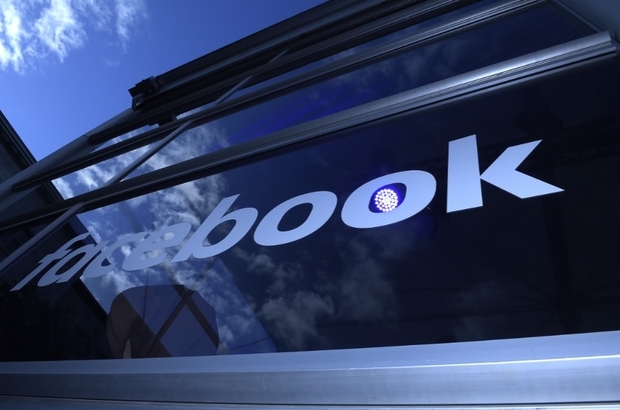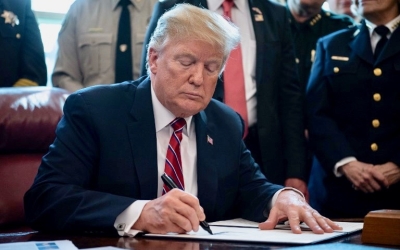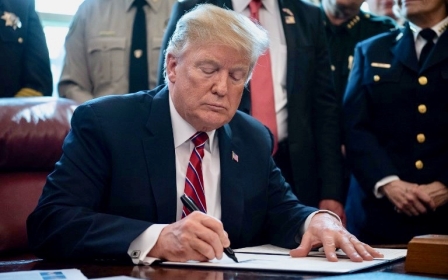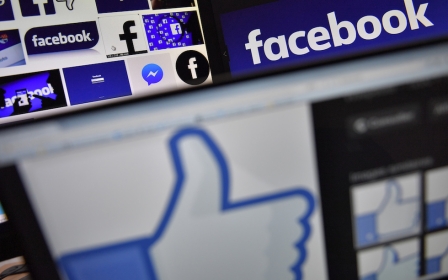Facebook to ban white nationalism and separatism content

Facebook has announced it will ban praise or support for white nationalism and white separatism as part of a crackdown on hate speech.
The ban will be enforced starting next week at the leading online social network and its image-centric messaging service Instagram.
"It's clear that these concepts are deeply linked to organised hate groups and have no place on our services," the social network said in a statement on Wednesday.
On Tuesday, Australia had warned social media executives they could be jailed for failing to quickly take down extremist material.
New Zealand Prime Minister Jacinda Ardern welcomed Facebook's move but said more needed to be done in the wake of the Christchurch mosque attacks.
When making the announcement, the California-based company did not specifically reference the 15 March atrocity that claimed 50 lives when a self-avowed white supremacist targeting Muslims opened fire in two mosques.
But Ardern made it clear she believed it was a direct response to the criticism that has since been levelled at Facebook, which the accused gunman used to livestream the attack.
"Arguably these categories should always have fallen within [Facebook's] community guidelines on hate speech," she told reporters.
"But it's positive that clarification has now been made in the wake of the attack here in Christchurch."
Life After Hate referral
Facebook policies already banned posts endorsing white supremacy as part of its prohibition against spewing hate at people based on characteristics such as race, ethnicity or religion.
The ban had not applied to some postings because it was reasoned they were expressions of broader concepts of nationalism or political independence, according to the social network.
Facebook said that conversations with academics and "members of civil society" in recent months led it to view white nationalism and separatism as linked to organised hate groups.
"Going forward, while people will still be able to demonstrate pride in their ethnic heritage, we will not tolerate praise or support for white nationalism and separatism," Facebook said.
People who enter search terms associated with white supremacy will get results referring them to resources such as Life After Hate which focus on helping people turn their backs on such groups, according to the social network.
Amid pressure from governments around the world, Facebook has ramped up machine learning and artificial intelligence tools for finding and removing hateful content while remaining open to free expression.
"Unfortunately, there will always be people who try to game our systems to spread hate," Facebook said.
"Our challenge is to stay ahead by continuing to improve our technologies, evolve our policies and work with experts who can bolster our own efforts."
Facebook said the new ban would not apply to topics such as American pride and Basque separatism, which "are an important part of people's identity," according to the statement.
Difficult to enforce
Mark Potok, a senior fellow at the Centre for Analysis of the Radical Right, believed Facebook's new ban could limit the spread of white nationalist rhetoric but doubted it would rid the world of the ideology.
"We'll see if they are able to enforce this," Potok told the AFP news agency.
"There are thousands of white nationalists posts on Facebook every day. They weren't able to stop the Christchurch [live-streaming] video so it will be challenging to do this" he said.
According to some researchers, white nationalists have been emboldened by the rise of politicians espousing traditionalist views and a tough line on immigration - from Marine Le Pen in France and Viktor Orban in Hungary to Russian President Vladimir Putin and the UKIP party in Britain.
Meanwhile in the US, President Donald Trump campaigned for the White House on an anti-immigration platform, backed by an overwhelmingly white voter base.
Trump notoriously appeared to sanction the march by white supremacists and neo-Nazis in Charlottesville, Virginia in 2017, and has often avoided condemning violence from the far-right.
Middle East Eye delivers independent and unrivalled coverage and analysis of the Middle East, North Africa and beyond. To learn more about republishing this content and the associated fees, please fill out this form. More about MEE can be found here.






